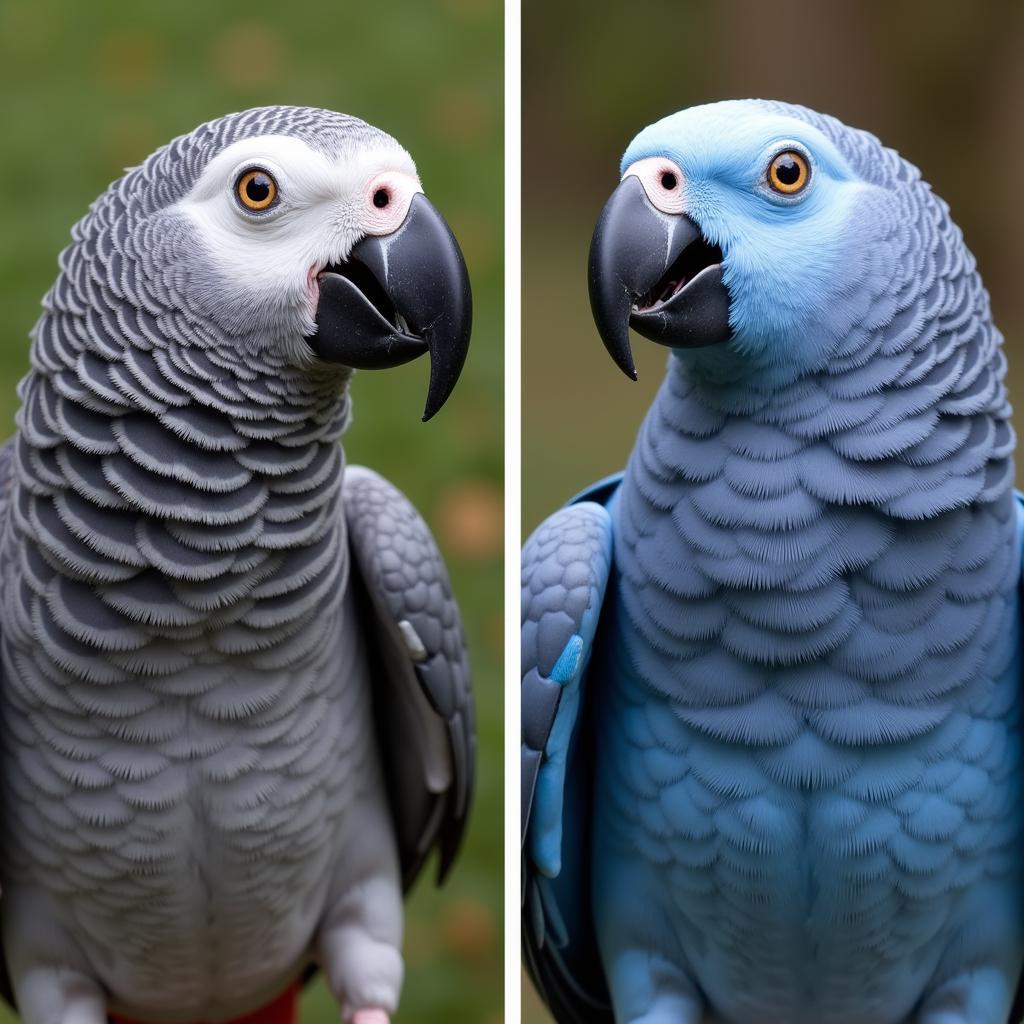African Grey Parrot Australia: Everything You Need to Know
African Grey parrots are known for their intelligence, ability to mimic human speech, and playful personalities. These captivating birds have become increasingly popular pets in Australia, but owning one requires a significant commitment. This comprehensive guide will cover everything you need to know about African Grey parrots in Australia, from their unique characteristics and care requirements to their legal status and adoption options.
African Grey Parrot Characteristics
African Grey parrots are native to Central and Western Africa, where they inhabit forests, savannas, and woodlands. They are known for their striking grey plumage with bright red tails, and their intelligence surpasses most other bird species. Here are some key characteristics that make African Greys so special:
- Highly Intelligent: African Greys have extraordinary cognitive abilities. They can learn a vast vocabulary, solve puzzles, and even understand abstract concepts.
- Vocal Mimicry: These parrots are renowned for their ability to mimic human speech with remarkable accuracy. They can learn phrases, songs, and even pronounce words with surprising clarity.
- Playful and Social: African Greys are highly social birds that thrive on interaction. They enjoy playing games, engaging in activities, and forming strong bonds with their owners.
- Long Lifespan: With proper care, African Grey parrots can live for 50-60 years, making them a lifelong commitment.
Caring for African Grey Parrots in Australia
Owning an African Grey parrot is a rewarding experience, but it also comes with significant responsibilities. Providing adequate care for these intelligent birds is crucial to their well-being. Here’s a breakdown of essential aspects:
Housing and Environment
- Spacious Cage: African Greys need a large, spacious cage with ample room for flight and movement. The minimum recommended cage size is 48 inches tall, 36 inches wide, and 24 inches deep.
- Perches and Toys: Provide a variety of perches of different sizes and materials to promote foot health. Offer a wide selection of toys to stimulate their minds and keep them entertained.
- Safe Environment: Ensure that the cage is placed in a safe area away from drafts, direct sunlight, and potential hazards.
Diet
- Pellet-Based Diet: A high-quality commercial parrot pellet should form the foundation of an African Grey’s diet.
- Fresh Fruits and Vegetables: Offer a variety of fresh fruits and vegetables daily, including apples, bananas, oranges, carrots, spinach, and broccoli.
- Seeds and Nuts (in moderation): Seeds and nuts can be offered as treats in moderation. Avoid offering chocolate, avocado, and sugary snacks.
Exercise and Stimulation
- Out-of-Cage Time: African Greys need regular out-of-cage time for exercise, exploration, and interaction with their owners.
- Mental Stimulation: Provide mental stimulation through puzzles, toys, and training sessions.
- Socialization: African Greys need social interaction with their owners and other birds, if appropriate.
Legal Considerations and Adoption Options
African Grey parrots are protected species in Australia, and owning one requires specific licenses and permits. Before purchasing or adopting an African Grey, it is essential to understand the legal regulations in your state or territory.
Obtaining a License
- Contact your local wildlife authority: Inquire about the licensing requirements for keeping an African Grey parrot.
- Provide proof of suitable housing: You will need to demonstrate that you have a spacious and safe environment for your parrot.
- Meet any other requirements: There may be additional requirements, such as proof of experience in caring for parrots.
Adoption Options
- Reputable breeders: Search for reputable breeders who prioritize the health and welfare of their birds.
- Rescue organizations: Consider adopting an African Grey parrot from a reputable rescue organization.
- Wildlife parks and sanctuaries: These institutions may offer adoption programs for African Grey parrots.
Expert Insights
“Owning an African Grey is a wonderful experience, but it’s important to understand the commitment involved,” says Dr. Jane Smith, a renowned avian veterinarian. “They are intelligent, social creatures that require specialized care. Make sure you have the time, resources, and dedication to provide them with a fulfilling life.”
“African Grey parrots can be wonderful companions, but they are also demanding pets,” adds John Doe, a seasoned parrot breeder. “Proper socialization, training, and enrichment are vital to their well-being. Be prepared for the challenges and rewards that come with owning one of these amazing birds.”
FAQs
- How much does an African Grey parrot cost in Australia? The cost of an African Grey parrot can vary depending on the breeder, age, and breeding lineage. Expect to pay between $2,000 and $5,000.
- Are African Grey parrots legal in all parts of Australia? Yes, but specific licenses and permits are required depending on your state or territory.
- What are the potential health problems associated with African Grey parrots? Like all parrots, African Greys are susceptible to certain diseases, including avian influenza, psittacine beak and feather disease, and proventricular dilatation disease.
- How can I train my African Grey parrot? Positive reinforcement methods are the most effective for training African Greys. Use treats, praise, and patience to teach them tricks, commands, and vocabulary.
- What are the signs of a healthy African Grey parrot? A healthy African Grey parrot will have bright, clear eyes, clean feathers, and a healthy appetite. Look for signs of lethargy, feather plucking, and weight loss, which may indicate a health problem.
Conclusion
Owning an African Grey parrot in Australia can be a rewarding experience, but it requires significant commitment and responsibility. These intelligent and vocal birds need a spacious environment, a nutritious diet, regular exercise, and mental stimulation. By understanding their unique needs and legal requirements, you can provide your African Grey with a happy and fulfilling life.
Remember, owning an African Grey parrot is a long-term commitment. Make sure you are prepared for the responsibilities involved before bringing one into your home.

